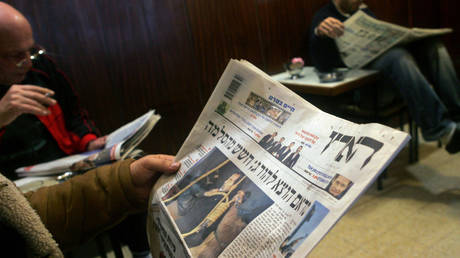ARTICLE AD BOX
The name of terrorist group Jaish al-Adl started doing the rounds this morning after Pakistan accused Iran of carrying out an airstrike in its territory, killing two children.
While Tehran has not made any official comment so far, Iran's state-run Nour News agency said the attack had destroyed the Pakistan headquarters of "jihadist group" Jaish al-Adl, news agency AFP reported.
What Is Jaish al-Adl
Jaish al-Adl is a Sunni Salafi organisation that operates mainly in south-eastern Iran bordering Pakistan. Jaish al-Adl, meaning "Army of Justice", was formed in 2012. It hit headlines in 2013 after it claimed responsibility for an attack that killed 14 Iranian guards. According to reports, the terrorist group had then said that the attack was an answer to the "violent crimes" of Iran's Islamic Revolutionary Guard Crops in Syria and "the oppression and crimes the regime has committed against the oppressed Sunnis of Iran". The group claims to be fighting for the independence of Sistan and Baluchistan province and more rights for Baluch people in Iran. It is currently led by Salahuddin Farooqui.
According to reports, Jaish al-Adl was founded by members of Jundallah. A Sunni terrorist group, Jundallah had faced a massive setback in 2010 after Iran captured and executed its leader Abdolmalek Rigi.
Attacks By Jaish al-Adal
Ever since its formation, the terrorist group has targeted Iranian border guards in the Sistan and Baluchistan regions. Last year, the group claimed responsibility for an attack on a police station. Two Iran police officers were killed and all four attackers died. More recently, on December 15, 11 police officers were killed when Jaish al-Adl operatives attacked another police station.
According to reports, the group has cooperated with Kurdish separatist groups in Iran. Earlier, Iranian state media has alleged that Saudi Arabia and the US back the terrorist group. Washington DC has labelled Jaish al-Adl a terrorist organisation. The US has said the group "primarily targets Iranian security personnel" but also government officials and civilians with assassinations, kidnappings, and suicide bombings. Tehran has blacklisted the group as a terrorist organisation.
How Jaish al-Adl Operates
Most attacks by the terrorist group have been raids across the Iran-Pakistan order. It uses Pakistan as a rear base, an issue that has soured ties between the neighbours. Jaish al-Adl operatives are known to use guerilla tactics, using small weapons and rocket launchers to target border outposts and military convoys. A 2017 report, titled 'Baluch insurgents in Iran', outlines how Jaish ul-Adl operations. The report by Nicholas Cappuccino in The Iran Primer says the group extensively promotes its operations online. "Unlike other rebel groups, its fighters often do not retreat. In videos, militants close in on the government forces and engage them at close range. Its fighters also use infrared technology during nighttime raids on government facilities," it says.
"The combination of discipline, hypermobility, knowledge of the terrain, innovation, and a logistical support apparatus has made Jaish ul Adl one of the deadliest Baluch rebel groups," the report adds.
The Geopolitics
Tehran's attack in Pakistan territory came shortly after its missile strikes in Iraq and Syria against what it called "anti-Iranian terrorist groups". Jaish al-Adal is known to back some of these groups that include the Sunni opposition in Syria's civil war and Kurdish rebels in Iraq. Tehran has claimed that its strikes in Iraq targeted Israel's intelligence services, but Baghdad has termed it an attack on its sovereignty. Iran is supporting terrorist group Hamas which attacked Israel cities in October, sparking a conflict that has already claimed over 25,000 lives.
On a broader scale, Iran's attack in Pakistan territory adds to the crises across the West Asian region, with Israel waging a war in Gaza and Yemen's pro-Palestinian Huthi rebels attacking commercial vessels in the Red Sea.
How Pakistan Responded
Pakistan has termed last night's attack "completely unacceptable" and said it was unprovoked. Sending a strong diplomatic message, it expelled the Iran Ambassador and recalled its envoy from Tehran. "This violation of Pakistan's sovereignty is completely unacceptable and can have serious consequences," Pakistan's foreign ministry said in a statement. "It is even more concerning that this illegal act has taken place despite the existence of several channels of communication between Pakistan and Iran," it said. Islamabad stressed that "such unilateral acts are not in conformity with good neighbourly relations".
Incidentally, the attack comes at a time when Pakistan is gearing up for national polls and a caretaker government is in place.
Michael Kugelman, director of South Asia Institute at the Washington-based Wilson Center, warned of the seriousness of the strike. "Iran has staged cross-border operations against Pakistan-based militants in the past, but I don't recall anything on this scale," he said on X.
"This plunges Pakistan-Iran ties -- a delicate relationship even in the best of times -- into serious crisis," he added.
.png)
 10 months ago
37
10 months ago
37








 English (US)
English (US)